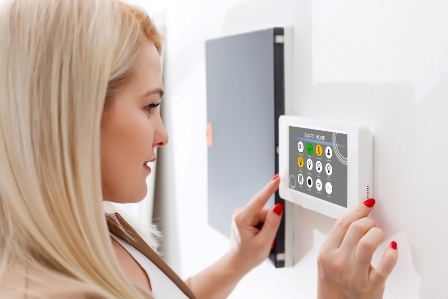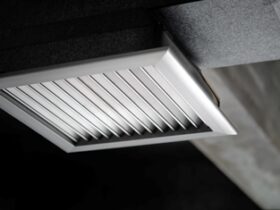The evolution of HVAC (Heating, Ventilation, and Air Conditioning) systems has witnessed a revolutionary addition in the form of smart thermostats. These cutting-edge devices have transformed the way we regulate temperature in our living and working spaces. In this article, we delve into the pivotal role that smart thermostats play in modern HVAC systems, exploring their benefits, integration with smart home systems, learning capabilities, remote accessibility, environmental impact, installation, and compatibility, cost considerations, common misconceptions, case studies, challenges, future trends, user experience, and regulatory support.
Benefits of Smart Thermostats
Smart thermostats offer a plethora of advantages that go beyond traditional temperature control. The foremost benefit is their remarkable energy efficiency. These devices are designed to optimize heating and cooling systems, ensuring minimal energy wastage. Consequently, users experience significant cost savings on their energy bills. The convenience and automation provided by smart thermostats cannot be understated. They adapt to users’ preferences, creating a comfortable environment without manual adjustments.
Integration with Smart Home Systems
One of the defining features of smart thermostats is their seamless integration with other smart home devices. From voice-activated assistants to security systems, these thermostats can communicate and collaborate with various gadgets. This integration enhances overall home automation, offering a centralized control hub for various functions within the household.
Learning Capabilities of Smart Thermostats
Smart thermostats come equipped with advanced learning capabilities. Through adaptive programming, these devices analyze user behavior and patterns. Over time, they autonomously adjust settings to optimize comfort while minimizing energy consumption. This learning aspect ensures that the HVAC system operates at peak efficiency, catering to the specific needs and routines of the occupants.
Remote Accessibility
Gone are the days of returning home to an uncomfortable temperature. Smart thermostats provide remote accessibility through mobile devices. Users can control and monitor their HVAC systems from anywhere, ensuring their living spaces are pre-conditioned to their liking. Real-time adjustments and monitoring contribute to a responsive and user-centric experience.
Environmental Impact
Smart thermostats contribute to a greener environment by reducing carbon footprints. These devices often come with eco-friendly features, such as energy-efficient algorithms and scheduling options. Users not only enjoy a comfortable living environment but also participate in sustainable practices that benefit the planet.
Installation and Compatibility
Unlike complex HVAC system upgrades, smart thermostats boast easy installation processes. They are designed to be compatible with a wide range of existing heating and cooling systems. This ensures that homeowners can enjoy the benefits of smart technology without major renovations or replacements.
Cost Considerations
While the initial investment in smart thermostat technology may raise eyebrows, the long-term savings outweigh the upfront costs. Users experience a notable decrease in energy bills, resulting in a favorable return on investment. The smart features and energy efficiency of these thermostats make them a cost-effective choice in the long run.
Common Misconceptions
Addressing myths and misconceptions is crucial in understanding the true value of smart thermostats. Some concerns revolve around privacy and security. Contrary to popular belief, reputable smart thermostat manufacturers prioritize robust security measures, ensuring user data remains confidential and protected.
Challenges and Limitations
While smart thermostats offer numerous advantages, acknowledging potential challenges is essential. Issues such as compatibility with older HVAC systems or occasional technical glitches may arise. However, manufacturers continually address these challenges to provide users with optimal performance and reliability.
Future Trends in Smart Thermostats
The world of smart technology is ever-evolving, and smart thermostats are no exception. Anticipated advancements include improved sensors, enhanced learning algorithms, and greater integration with emerging technologies. Staying abreast of these trends is key for homeowners and businesses looking to adopt the latest in HVAC innovation.
Regulatory Support and Standards
Governments recognize the environmental benefits of energy-efficient technologies. Incentives and regulations often support the adoption of smart thermostats. Additionally, industry standards guide manufacturers in producing reliable and compliant devices. This regulatory support contributes to the widespread acceptance and implementation of smart thermostat technology.
FAQs
Smart thermostats are designed to be compatible with a wide range of HVAC systems. However, it’s essential to check compatibility before installation.
Yes, smart thermostats are programmed to optimize energy usage, resulting in significant savings on energy bills over time.
Reputable manufacturers prioritize the security of user data, implementing robust measures to ensure confidentiality and protection.
Many smart thermostats are designed for easy installation, but professional assistance may be recommended for complex systems.
Future trends include improved sensors, enhanced learning algorithms, and greater integration with emerging technologies for even more intelligent HVAC systems.
Conclusion
Smart thermostats have emerged as indispensable components of modern HVAC systems. Their benefits extend beyond conventional temperature control, encompassing energy efficiency, cost savings, convenience, and environmental responsibility. As technology continues to advance, smart thermostats will play an increasingly vital role in creating comfortable, sustainable, and intelligent living spaces.










Find Us on Socials